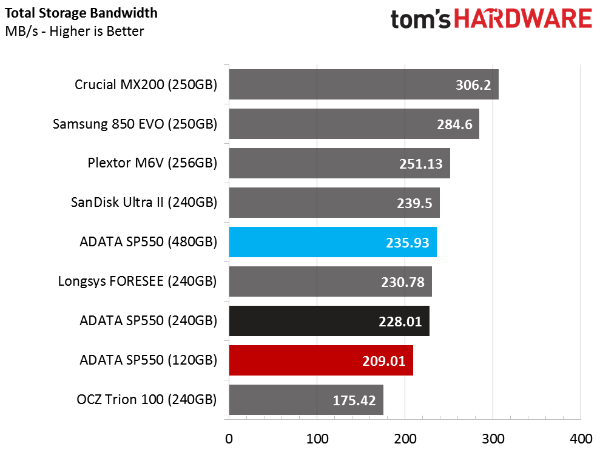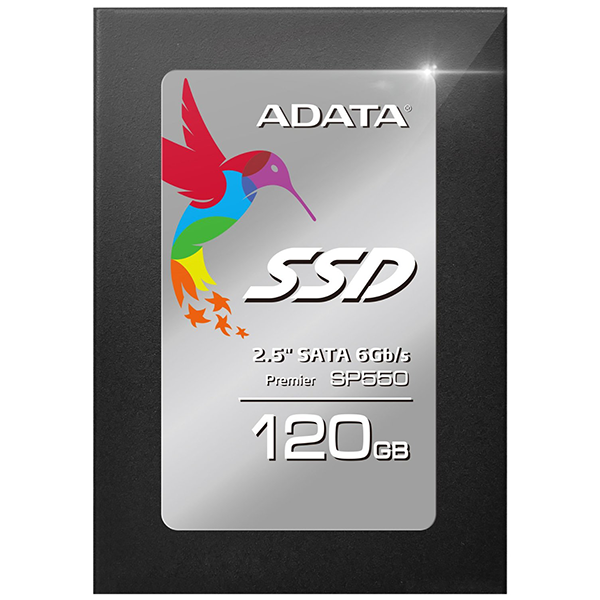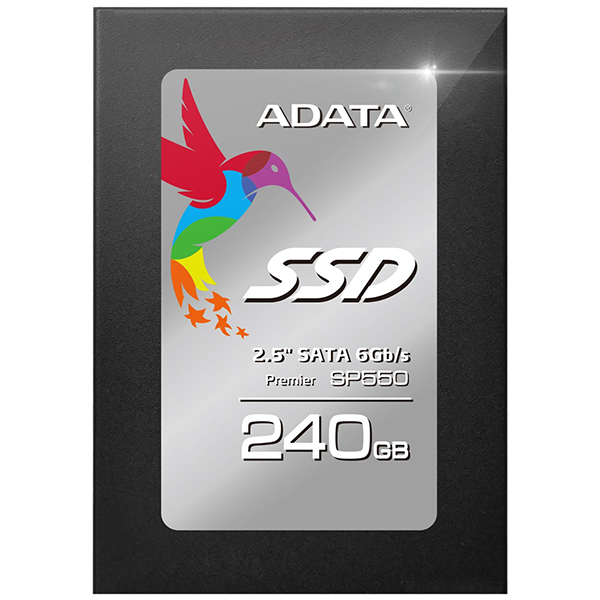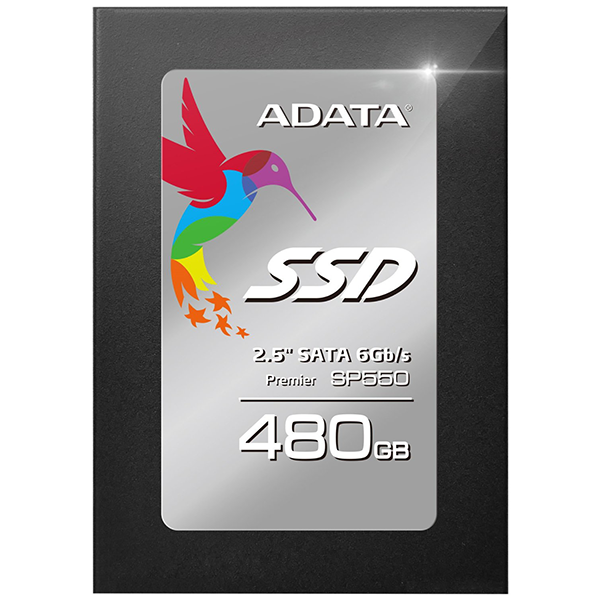Adata SP550 SSD Review
Adata's SP550 is the first SSD to hit our lab with Silicon Motion's new SM2256 controller paired with SK Hynix NAND. But does it compete with Samsung's prolific 850 EVO?
Why you can trust Tom's Hardware
Real-World Software Performance Testing
PCMark 8 Real-World Software Performance
For details on our real-world software performance testing, please click here.
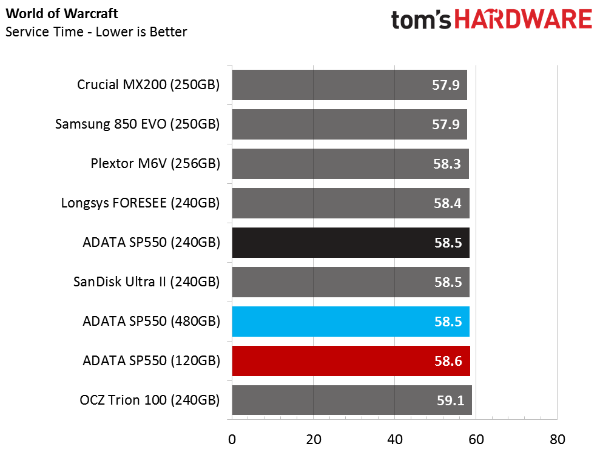
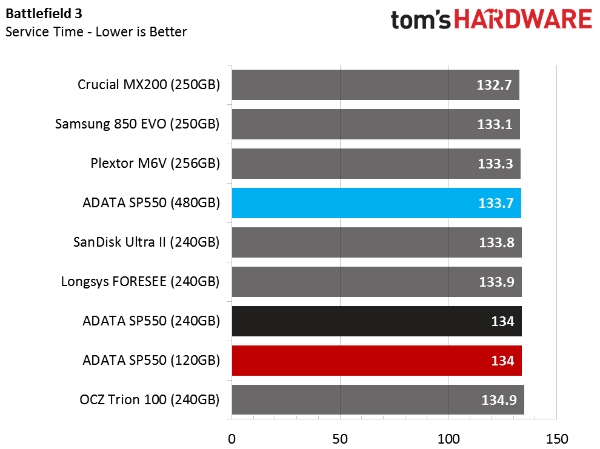
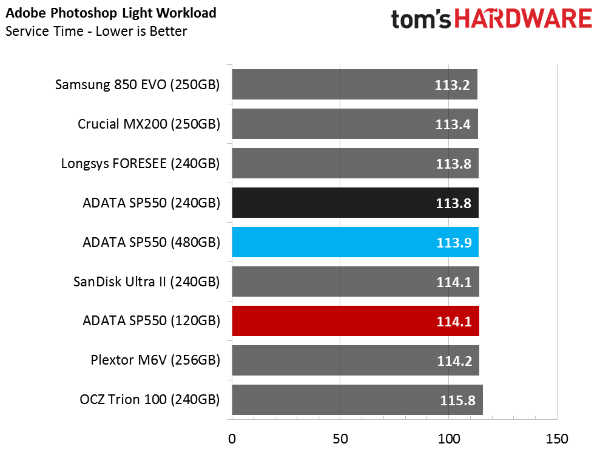
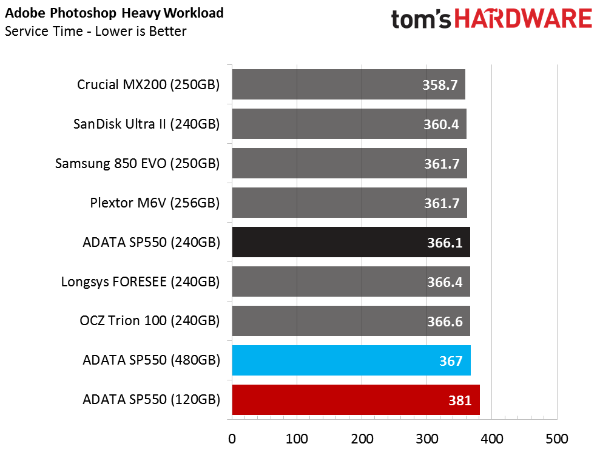
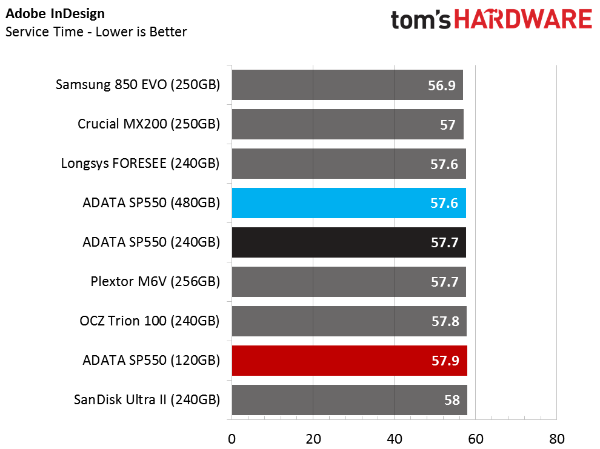
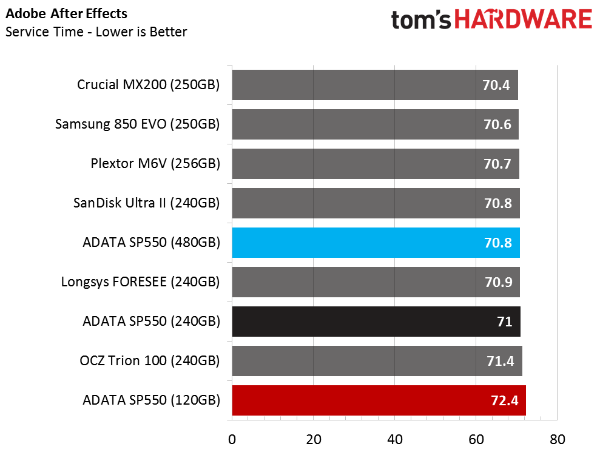
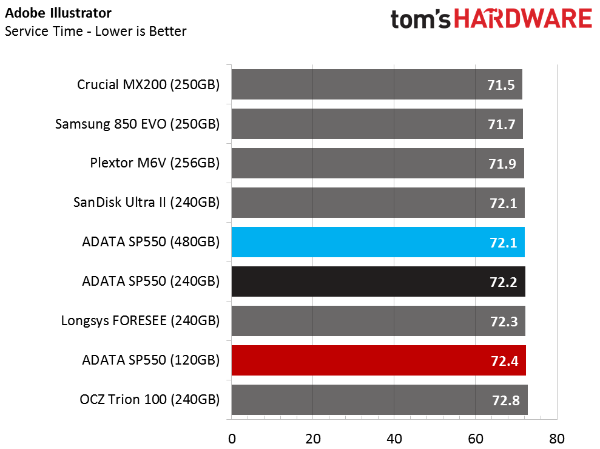
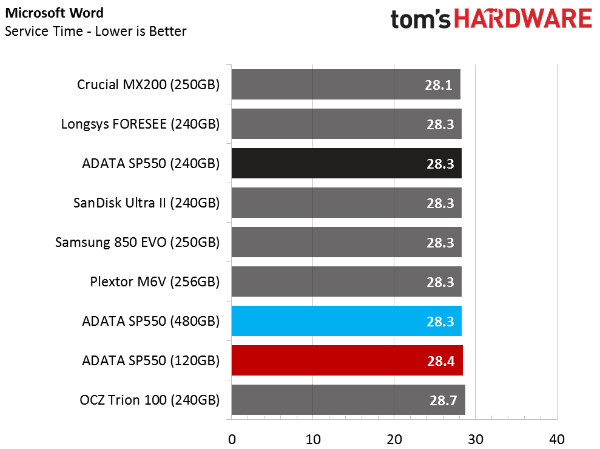
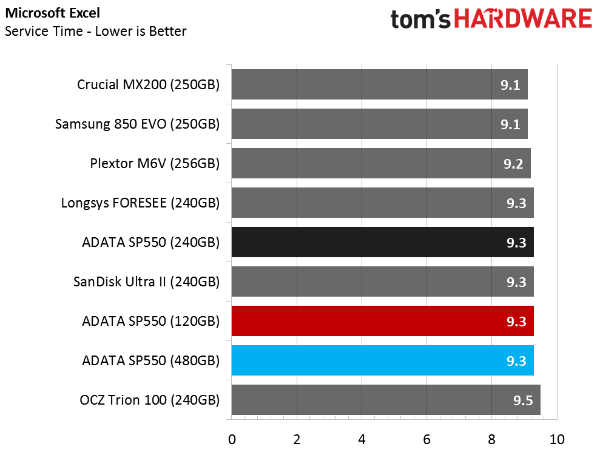
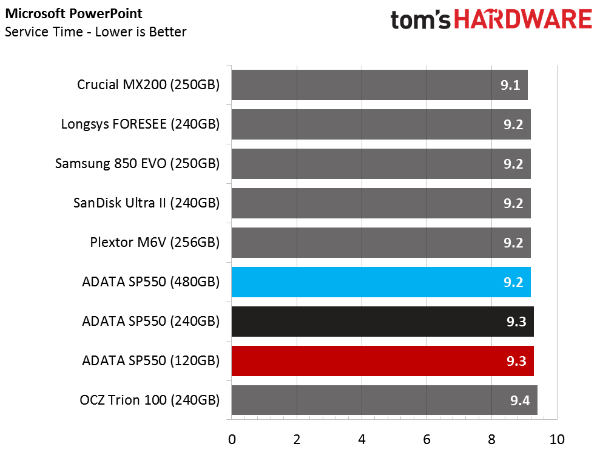
For the most part, there's no reason to buy Adata's 480GB SP550 over the 240 or 120GB models if performance is your only criteria. The larger drive should dominate the real-world performance charts or, at the very least, give Samsung's 850 EVO a run for its money. The individual results are all similar, so we turn to the averages for more insight.
Total Storage Bandwidth
Through the averages, we can start to classify each drive's performance in the real-world software most of us use every day. I wouldn't go so far as to say the SP550 is disappointing; we'll reserve that judgement for the drive at the bottom of the chart, which is outmoded by a $50 120GB SSD. The 240GB SP550 is marginally better. It hangs with SanDisk's year-old Ultra II.
PCMark 8 Advanced Workload Performance
To learn how we test advanced workload performance, please click here.
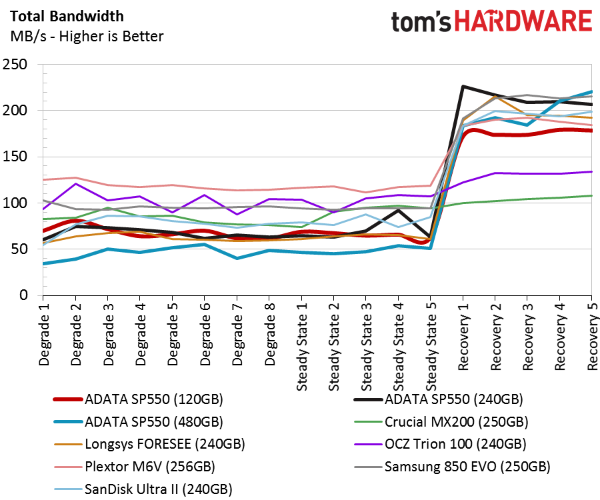
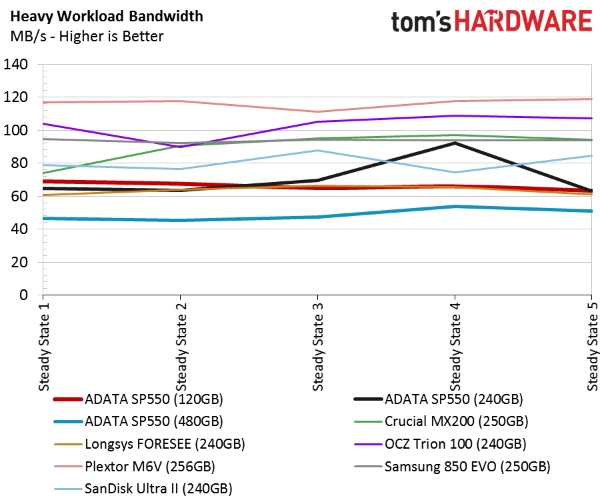
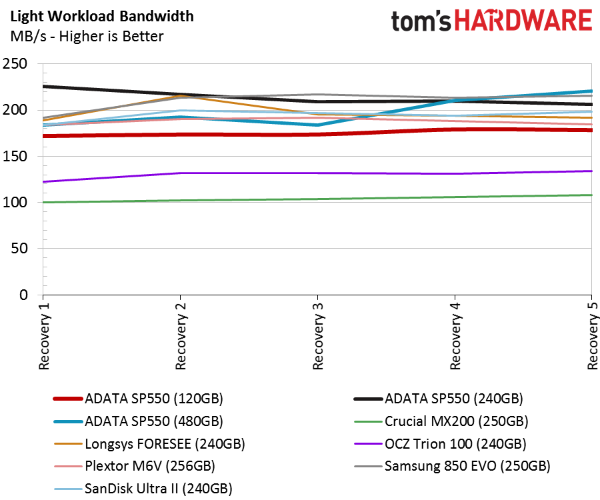
The two highest-capacity SP550s recover well after running in steady state for an extended period. If we charted 128GB-class drives, the smallest SP550 would compare well to its contemporaries.
Since most low-cost SSDs go into systems that endure little storage wear from multimedia files, the light workload is more applicable to them than the heavy one. One day, we hope to see a low-cost drive hold its own under duress, but that hasn't happened yet.
Latency Test
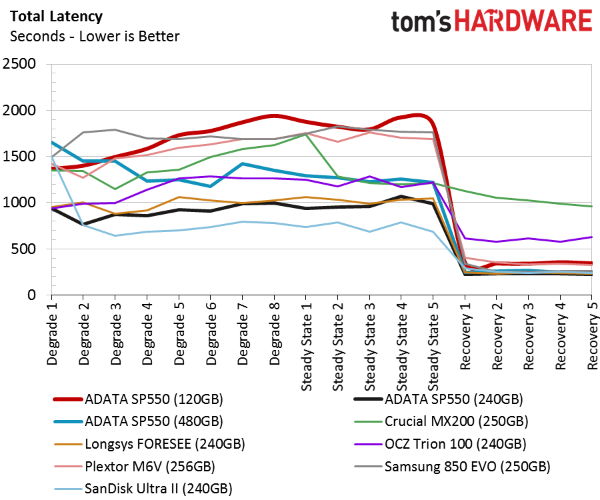
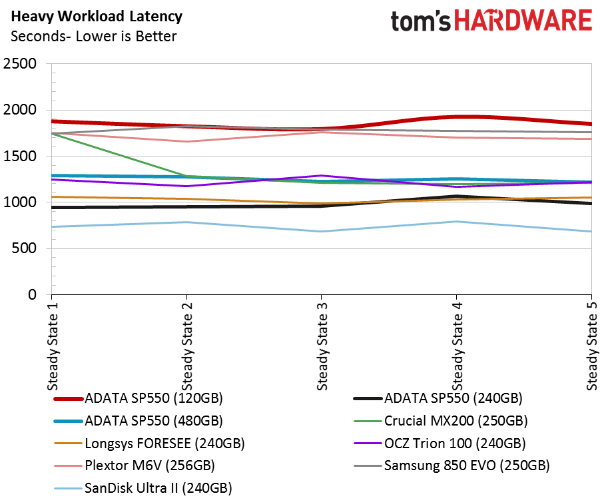
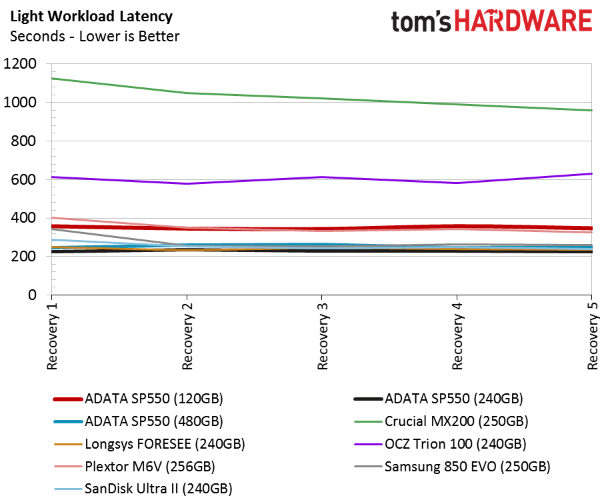
For me, our latency tests are more important than any other metric. Regardless of your workload, the time between a request and the action to start is what you "feel" as you use your PC. That instant gratification is the reason most of us buy SSDs. Low-cost drives are susceptible to wide latency swings. Remember the random 4KB write steady state test? Depending on your previous workload and whether wear-leveling is happening, the delays can be palpable. Of course, if your main workload includes Web-surfing, then any of the drives on our chart will satisfy you. If, however, you write even moderate amounts of data, spend a little more to get better latency performance.
Get Tom's Hardware's best news and in-depth reviews, straight to your inbox.
Notebook Battery Life
For more information on how we test notebook battery life, click here.
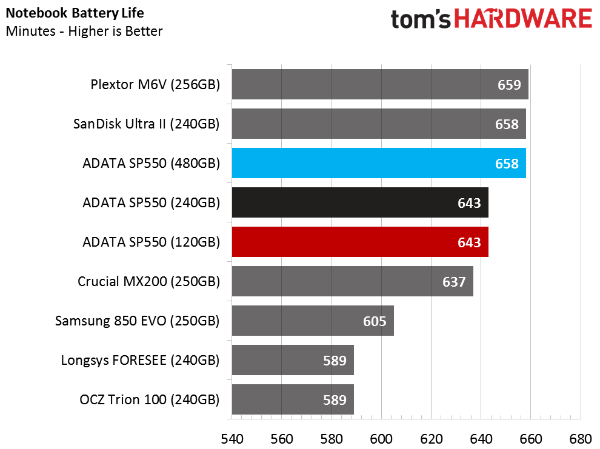
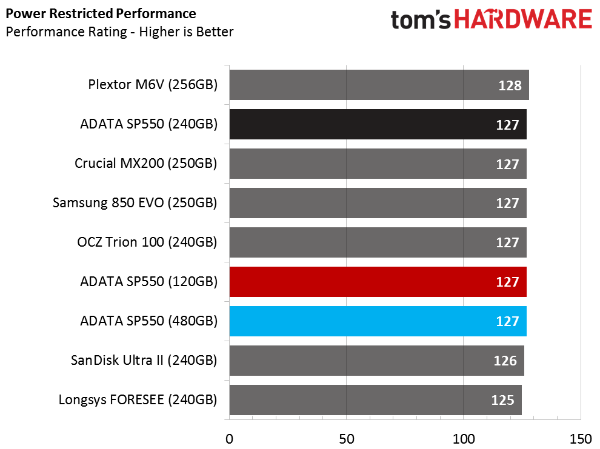
Silicon Motion controllers tend to perform well in our notebook battery life tests. A few SM2246EN-based products shipped before DEVSLP functioned correctly, but outside of those, the company has a good history. Its four-channel controllers, including the SM2256, use very little power. The architecture also has strong wear-leveling algorithms that save power. All SSDs need to run clean+up in the background, but some companies do a better job of optimizing the task for energy efficiency. Final SM2256 silicon stays on the same track as the engineering sample we looked at previously.
Current page: Real-World Software Performance Testing
Prev Page Mixed Workloads & Steady State Next Page Conclusion
Chris Ramseyer was a senior contributing editor for Tom's Hardware. He tested and reviewed consumer storage.
-
Eggz A little boring, but I guess this would be good for a value build with an AMD chip for decent performance at a pretty low cost.Reply -
jjb8675309 The 240GB model is a good value but the 250GB EVO is going for $80 right now, I'd probably get that if faced with the choice.Reply -
Rookie_MIB Currently listing on Newegg for $42/$64/$119 for the 120/240/480GB.Reply
$119 for a good name-brand 480GB drive that performs decently enough is good to see, as a 1TB drive should come in right around the $200 mark.
The only thing is, and it's probably why the 960GB hasn't been released is that based on the performance of the 480GB drive they probably have to put in and validate a different controller. The 4 channel controller would just run out of bandwidth trying to handle all the data and would lose out on the parallelism which makes SSDs as fast as they are. So - they'd need an 8 channel controller for sure which might jump the cost a bit. -
zodiacfml If that's the conclusion then Adata has better SSDs compared to Crucial's latest drives. Samsung pretty owns the market due to being also a NAND manufacturer.Reply
